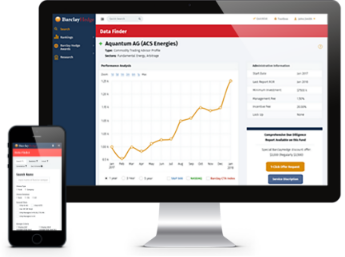Merger arbitrage is an investment strategy that simultaneously buys and sells the stocks of two merging companies.
Before we explain that, let’s review the concept of arbitrage. Arbitrage, at its most simplest, involves buying securities on one market for immediate resale on another market in order to profit from a price discrepancy. But in the hedge fund world, arbitrage more commonly refers to the simultaneous purchase and sale of two similar securities whose prices, in the opinion of the trader, are not in sync with what the trader believes to be their “true value.” Acting on the assumption that prices will revert to true value over time, the trader will sell short the overpriced security and buy the underpriced security. Once prices revert to true value, the trade can be liquidated at a profit. (Remember, short selling is simply borrowing a security you don’t own, selling it, then hoping it declines in value, at which time you can buy it back at a lower price than you paid for it and return the borrowed securities.) Arbitrage can also be used to buy and sell two stocks, two commodities and many other securities.
Merger arbitrage is a type of Event-Driven investing, which is an investing strategy that seeks to exploit pricing inefficiencies that may occur before or after a corporate event, such as a bankruptcy, merger, acquisition or spinoff.
To illustrate, consider what happens in the case of a potential merger. When a company signals its intent to buy another company, the stock price of the target company typically rises, and the stock price of the acquiring company typically declines. However, the stock price of the target company usually remains somewhere below the acquisition price—a discount that reflects the market’s uncertainty about whether the merger will truly occur.
That’s where merger arbitrageurs enter the picture. To understand how merger arbitrage is profitable, it is important to understand that corporate mergers are typically divided in two categories: cash mergers and stock-for-stock mergers.
With cash mergers, an acquiring company purchases the shares of the target company for cash. Until the acquisition is complete, the stock of the target company typically trades below the acquisition price. So, one can buy the stock of the target company before the acquisition, and then make a profit if and when the acquisition goes through. This is not arbitrage, however; this is a speculation on an event occurring.
With a stock-for-stock merger, an acquiring company exchanges its own stock for the stock of the target company.During a stock-for-stock merger, a merger arbitrageur buys the stock of the target company while shorting the stock of the acquiring company. So, when the merger is complete, and the target company’s stock is converted into the acquiring company’s stock, the merger arbitrageur simply uses the converted stock to cover his or her short position.
While that sounds simple, there are a number of risks involved. For example, the merger may not go through due to a number of reasons. One of the companies may not be able to satisfy the conditions of the merger. Shareholder approval may not be obtained. Or, regulatory issues (such as antitrust laws) may prevent the merger.
Additional complications arise with stock-for-stock mergers when the exchange ratio—the ratio at which the target company’s stock is exchanged for the acquiring company’s stock—fluctuates with the stock price of the acquiring company. This makes evaluating a merger arbitrage opportunity complex, and requires significant expertise on the part of the merger arbitrageur.
Because of these risks, merger arbitrageurs must have the knowledge and skill to accurately assess a number of factors. A merger arbitrageur will analyze the potential merger—looking at the reason for the merger, the terms of the merger, and any regulatory issues that may hinder the merger—and determine the likelihood of the merger actually occurring and how.
Because this requires expertise, large institutional investors—such as hedge funds, private equity firms and investment banks—are the major user of merger arbitrage.
In summary, then, while merger arbitrage may sound like a good investment strategy, and often is, it is best used by sophisticated investors who have the expertise to evaluate the merger and are willing to accept the risk of it not going through.
Get comprehensive and up-to-date information on 6100 + Hedge Funds, Funds of Funds, and CTAs in the Barclay Global Hedge Fund Database.


